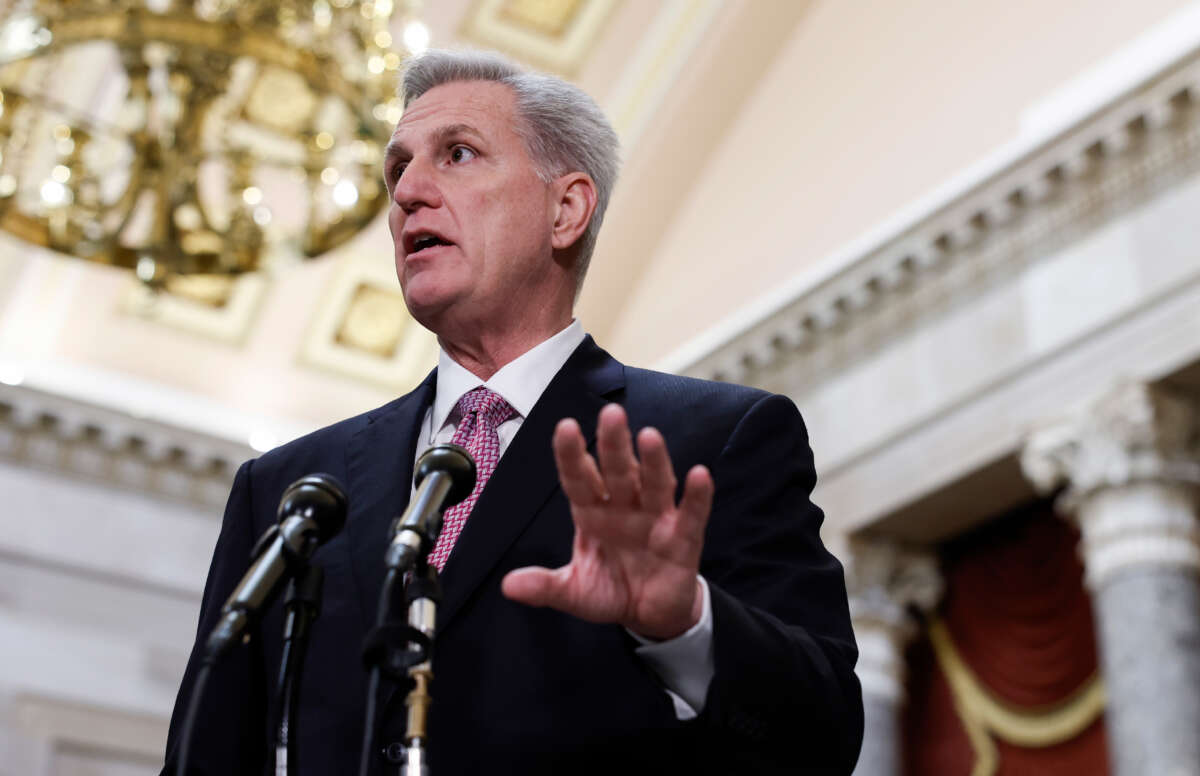Republican Party insiders have indicated that, for the time being, the party will not seek to repeal the Affordable Care Act (ACA), an Obama-era piece of legislation that expanded access to health care for millions of Americans.
The GOP has made dozens of attempts to overturn the law since it was first passed in 2010. In the House of Representatives alone, Republicans have introduced at least 100 resolutions aimed at upending the law, which provides financial assistance to people who need help paying for insurance and forbids private insurers from denying health care coverage on the basis of preexisting medical conditions.
Each attempt to repeal the law has failed. Even when Republicans controlled both houses of Congress and the presidency, the law proved too popular for some to justify casting a vote in favor of revoking it. In 2019, then-Minority Leader of the House Rep. Kevin McCarthy (R-California) told former President Donald Trump that the party should back off from trying to repeal the law, especially since Democrats controlled one of the two chambers of Congress.
According to reporting from Semafor, 2024 GOP presidential hopefuls recognize that it’s a losing issue and will likely attempt to avoid discussing the topic at all.
“I haven’t seen any evidence that [potential candidates] are looking to relitigate at this point a 12-year-old law,” Sen. J.D. Vance (R-Ohio) told the publication.
That doesn’t mean the party is giving up on repealing the law, however. New Hampshire Gov. Chris Sununu (R), a potential presidential candidate, told Semafor that repeal of the law isn’t off the table, but that the party should develop a replacement plan first.
Semafor reporter Joseph Zeballos-Roig has suggested that Republicans might be aiming to “skate through” the primaries without drawing attention to their true goals regarding health care policy.
“But Republicans will have to address the issue sooner or later,” Zeballos-Roig said, adding that “Democrats have only grown more confident running on protecting the ACA, Medicaid, and Medicare and are clearly signaling they will be major issues in the general election.”
Notably, a Politico/Morning Consult poll published in November found that 52 percent of Americans approve of the ACA, while just 36 percent say they disapprove of the law.
Still, other polling finds that most Americans are unhappy with the U.S.’s current health care system, with sizable portions saying they want a single payer model. Indeed, a Morning Consult poll in 2021 found that a majority of Americans want a single payer proposal, with 55 percent backing the idea.
Gallup polling from January shows that most Americans want the government to play a role in ensuring that the majority of Americans have access to health care. Although the poll’s respondents were split on the matter of a single payer program, the poll also found that nearly 6 in 10 Americans (57 percent) felt it was the federal government’s responsibility to help all Americans access health care coverage.
Join us in defending the truth before it’s too late
The future of independent journalism is uncertain, and the consequences of losing it are too grave to ignore. To ensure Truthout remains safe, strong, and free, we need to raise $43,000 in the next 6 days. Every dollar raised goes directly toward the costs of producing news you can trust.
Please give what you can — because by supporting us with a tax-deductible donation, you’re not just preserving a source of news, you’re helping to safeguard what’s left of our democracy.
